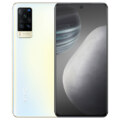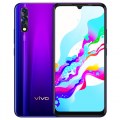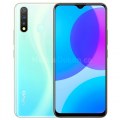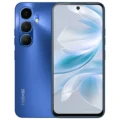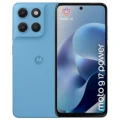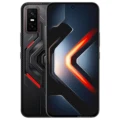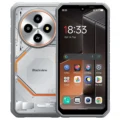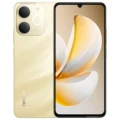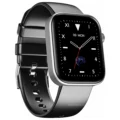Vivo X100 Ultra
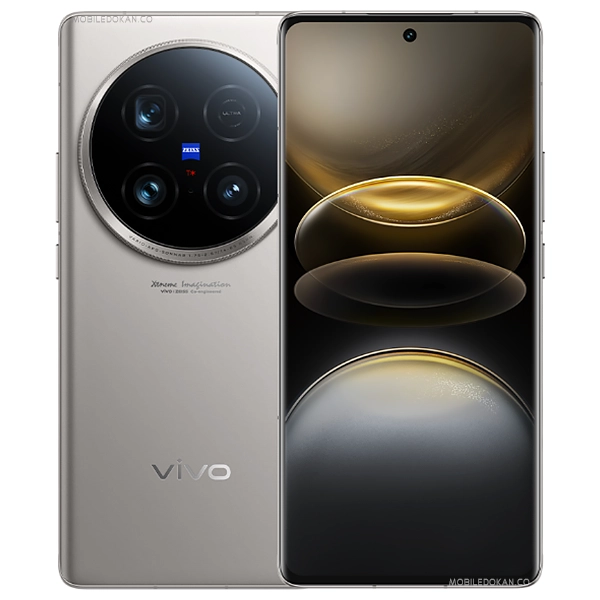

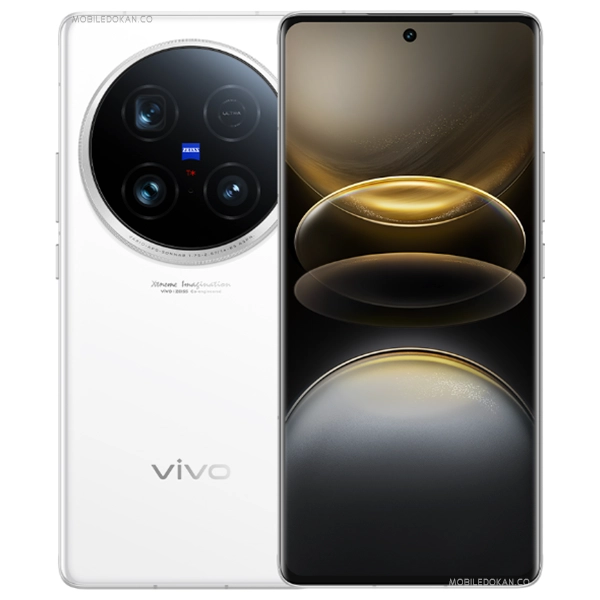
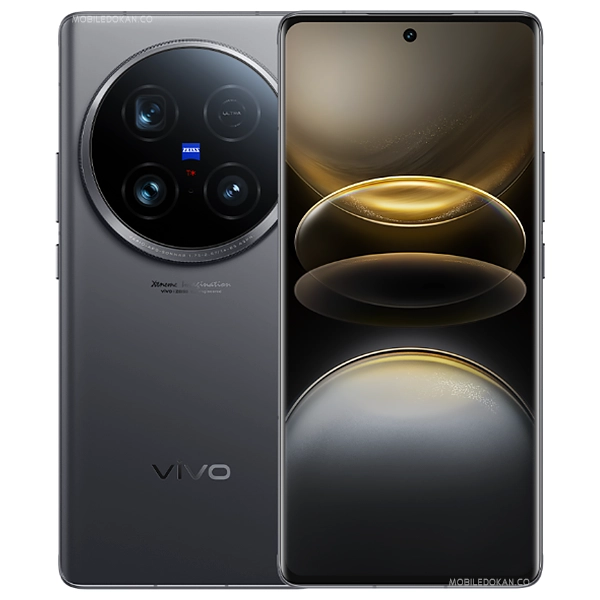
Pro and cons
Pros
- IP68 dust/water resistant.
- 6.78-inch LTPO AMOLED display.
- Qualcomm Snapdragon 8 Gen 3, 12GB/16GB RAM.
- Triple rear cameras 50MP, 200MP and 50MP.
- 5500 mAh battery with 80W charger.
Cons
- No Audio 3.5mm jack.
- FM is not supported.
Specifications
Prices
| Expected price The expected price represents the anticipated cost of a product converted from major currencies like the Dollar, Euro, Yuan, and Rupee. | ৳1,10,000 |
Launch
| Announced | 2024, May 13 |
| Status | Available. Released 2024, May 28 |
Network
| Technology | GSM / CDMA / HSPA / LTE / 5G |
| 2G bands It’s the 2nd generation mobile data communication technology. | GSM 850 / 900 / 1800 / 1900 - SIM 1 & SIM 2 CDMA 800 / 1900 |
| 3G bands It is the 3rd generation mobile data communication technology. | HSDPA 800 / 850 / 900 / 1700(AWS) / 1900 / 2100 |
| 4G bands It is the 4th generation mobile data communication technology. | 1, 2, 3, 4, 5, 7, 8, 12, 17, 18, 19, 20, 25, 26, 28, 34, 38, 39, 40, 41, 42, 66 |
| 5G bands | 1, 2, 3, 5, 7, 8, 12, 20, 25, 26, 28, 38, 40, 41, 66, 77, 78, 79 SA/NSA |
| Speed | HSPA, LTE, 5G |
Body
| Dimensions It's the size of the phone in format (H x L x W) and the volume of the phone where available. | 164.1 x 75.6 x 9.2 mm (6.46 x 2.98 x 0.36 in) |
| Weight | 229 g (8.08 oz) |
| SIM SIM (Subscriber Identity Module) is a small card that contains a mobile network subscriber's account information. This allows the phone to use the card to attach to a mobile network. The SIM card is most commonly associated with GSM and UMTS mobile networks. Moving a SIM card from one phone to another allows a subscriber to switch mobile phones without having to contact their mobile network carrier. SIM cards can also be used by a phone to store limited amounts of data, such as phone numbers and text messages. | Dual SIM (Nano-SIM, dual stand-by) |
| Others | IP68 dust/water resistant (up to 1.5m for 30 min) |
Display
| Type A number of display technologies and types used in mobile phones TFT (Thin Film Transistor), IPS (In-Place Switching), OLED (Organic Light Emitting Diode), AMOLED (Active-Matrix Organic Light-Emitting Diode), Super AMOLED (an even advanced version of AMOLED), Resistive Touchscreen (Resistive touchscreens contain two-layer of conductive material with a very small gap between them which acts as a resistance), Capacitive Touchscreen (Capacitive touchscreen technology consists of a layer of glass coated with a transparent conductor) | LTPO AMOLED, 1B colors, 120Hz, Dolby Vision, HDR, 3000 nits (peak) |
| Size The industry-standard way of representing display sizes is publishing their length in inches. The screen-to-body ratio is a measure that relates to the size of the screen bezels. The bigger the ratio, the smaller the bezels are, meaning the display takes up a larger area on the device's front. | 6.78 inches, 111.4 cm2 (~89.8% screen-to-body ratio) |
| Resolution Display Resolution is the measuring way of how much pixels does a display contains. A higher resolution means more pixels and more pixels provide the ability to display more visual information (resulting in greater clarity and more detail). | 1440 x 3200 pixels, 20:9 ratio (~517 ppi density) |
Platform
| OS Every Mobile Phone system runs on a base software called Operating System (OS). Operating System controls all basic operations of the Mobile (such as smartphones, PDAs, tablet computers, and other handheld devices). The Operating System allows the user to install and run third party applications (apps), apps are used to add new functionality to the device. | Android 14, OriginOS 4 (China) |
| Chipset It is a group of integrated circuits designed to perform one or more dedicated functions, often with real-time computing constraints, Popular smartphones are equipped with more advanced embedded chipsets that can do many different tasks depending on their programming. | Qualcomm SM8650-AB Snapdragon 8 Gen 3 (4 nm) |
| CPU CPU (Central Processing Unit) mostly known as processors, CPU processes instructions in order to carry out certain functions that make your device operate properly. Processors are often described as the brain of computers, smartphones and tablets, Smartphones and tablets rely on processors to carry out their every task, Processors are an incredibly important factor in selecting any type of computing device, including your smartphone. | Octa-core (1x3.3 GHz Cortex-X4 & 3x3.2 GHz Cortex-A720 & 2x3.0 GHz Cortex-A720 & 2x2.3 GHz Cortex-A520) |
| GPU GPU (Graphics Processing Unit) is a single-chip processor designed to rapidly manipulate and alter memory to accelerate the creation of images in a frame buffer intended for output to a display, This includes things such as lighting effects, object transformations, and 3D motion. | Adreno 750 |
Memory
| Card slot A special slot for inserting a memory card for expanding your storage. It is a special slot for inserting a memory card. Memory cards allow you to expand the phone's built-in memory, A memory card (sometimes called a flash memory card or a storage card) is a small storage medium used to store data such as text, pictures, audio, and video, for use on small, portable or remote computing devices such as mobile phones, mp3 players, digital cameras. | No |
| Internal Internal memory is the memory available onboard (chip or motherboard) which is given while manufacturing at the factory. is a data storage space (flash memory) mostly used in smartphones, tablets, and other electronic devices where operating system, apps, music, photos, videos, files, and other user data Is stored. | 256/512 GB / 1TB |
| RAM RAM (Random Access Memory) is a type of mobile, computer memory that can be accessed randomly, any byte of memory can be accessed without touching the preceding bytes that allow information to be stored and accessed quickly from random locations. RAM is the most common type of memory found in computer systems, smartphones, tablets, and other electronic devices. | 12/16 GB |
| Variant | 12GB 256GB / 16GB 256GB / 16GB 512GB / 16GB 1TB |
Main camera
| Triple | 50 MP, f/1.8, 23mm (wide), 1/0.98", 1.6µm, PDAF, Laser AF, gimbal OIS 200 MP, f/2.7, 85mm (periscope telephoto), 1/1.4", 0.56µm, PDAF, OIS, 3.7x optical zoom 50 MP, f/2.2, 14mm, 116˚ (ultrawide), 1/2.0", 0.8µm, AF |
| Features | Zeiss optics, Zeiss T* lens coating, LED flash, panorama, HDR, 3D LUT import |
| Video | 8K@30fps, 4K@30/60/120fps, 1080p, gyro-EIS, Cinematic mode (4K), Dolby Vision HDR |
Selfie camera
| Single | 50 MP, f/2.5, (wide), 1/2.76", 0.64µm, AF |
| Features | HDR |
| Video | 4K@30/60fps, 1080p@30/60fps |
Sound
| Loudspeaker Loudspeaker is a small sound driver fitted within a mobile phone, which is used to produce sound. | Yes, with stereo speakers |
| 3.5mm jack A common connector for plugging in audio output or input. | No 24-bit/192kHz Hi-Res audio |
Connectivity
| WLAN Wireless Local Area Network (WLAN) is a method of distributing data wirelessly to a local area network practically to the internet. It is a popular wireless networking technology using radio waves to provide high-speed network connections that allow devices to communicate without cords or cables, Wi-Fi is increasingly becoming the preferred mode of internet connectivity all over the world. | Wi-Fi 802.11 a/b/g/n/ac/6/7, dual-band |
| Bluetooth Bluetooth is a wireless technology standard for exchanging data over short distances from fixed and mobile devices. It is a wireless communications technology for exchanging data between mobile phones, headsets, computers, and other network devices over short distances without wires, Bluetooth technology was primarily designed to support simple wireless networking of personal consumer devices. | 5.4, A2DP, LE, aptX HD, aptX Adaptive, aptX Lossless, LHDC |
| GPS GPS (Global Positioning System) originally Navstar GPS, is a satellite-based radio navigation system. It is a satellite-based radio navigation system, GPS permits users to determine their position, velocity, and the time 24 hours a day, in all weather, anywhere in the world, In order to locate your position, your device or GPS receiver must have a clear view of the sky. | GPS (L1+L5), BDS (B1I+B1c+B2a), GALILEO (E1+E5a), QZSS (L1+L5), GLONASS |
| NFC NFC (Near Field Communication) is a shorter range of high-frequency data transferring technology. It is a set of standards for smartphones and similar devices to establish peer-to-peer radio communications with each other by touching them together or bringing them into proximity, usually no more than a few inches. | Yes |
| FM radio FM broadcasting is a method of radio broadcasting using frequency modulation technology. | No |
| USB USB is a standard for a wired connection between two electronic devices, including a mobile phone and a desktop computer. | USB Type-C 3.2, OTG |
| Infrared port IrDA (Infrared Data Association) is an old data sharing technology in the means of Infrared Port. It uses a beam of infrared light to transmit information and so requires a direct line of sight and operates only at close range. |
Features
| Sensors A sensor is a device, module, or subsystem whose purpose is to detect events or changes in its environment and send the information to other electronics. The specific input could be light, heat, motion, moisture, pressure, and location, The output is generally a signal that is converted to use in computing systems, a location sensor, such as a GPS receiver is able to detect the current location of your electronic device. | Dual screen fingerprint (under display, ultrasonic), accelerometer, gyro, proximity, compass, color spectrum Emergency SOS via satellite (calls, messages) - 16GB + 1TB model only |
Battery
| Type Cell phones run on various kinds of batteries depending on the manufacturer, phone size or shape, and features. There are basically four types of cell phone batteries Lithium Polymer (Li-Po), Lithium-Ion (Li-Ion), Nickel Metal Hydride, and Nickel Cadmium. | Non-removable Li-Po |
| Capacity The unit of capacity is milliamp-hours (mAh), which means 3000mAh can be put on the battery to discharge it in one hour. The battery capacity represents the maximum amount of energy that can be extracted from the battery under certain conditions. | 5500 mAh |
| Charging | 80W wired 30W wireless Reverse wired |
More
| Made by | China |
| Color | Titanium, White, Grey |
| Models | V2366GA, V2366HA |
Disclaimer
We do not guarantee that the information of this page is 100% accurate and up to date.
Vivo X100 Ultra Price in Bangladesh January 2026
The Vivo X100 Ultra is now available in three variants (256/512GB/1TB/12/16GB ROM/RAM). Now, Vivo X100 Ultra’s Price is 110000 Taka in Bangladesh. X100 Ultra has a 5500mAh battery with 80W fast charging. This device is running with Android 14 and is powered by the Qualcomm SM8650-AB Snapdragon 8 Gen 3 (4 nm) chipset.
| Model | Vivo X100 Ultra |
| Price | BDT. 1,10,000 |
| Display | 6.78″1260×2800 pixels |
| RAM | 12/16 GB |
| ROM | 256/512 GB / 1TB |
| Released | 2023, May |
Vivo X100 Ultra highlight
Vivo X100 Ultra will be launched in May 2023. Firstly, the display of the X100 Ultra is a 6.78-inch LTPO3 AMOLED panel with 1440 x 3200 pixels resolution. Secondly, the display is protected with unknown glass. X100 Ultra phone has a three-camera setup on the back. This formation consists of a 50MP wide, 200MP periscope telephoto, 50MP ultrawide camera. It has a 50MP selfie camera inside the punch hole of the display. On the other hand, it can support up to microSDXC and it has a dual nano-SIM card slot.
Among the other features, there is WLAN, Bluetooth, USB port Face unlocks, etc.
Your question and our opinion about the X100 Ultra
Which question you will have about this phone? Let’s justify these. There we are including the major questions and answers about this phone. So, let’s start now.
It will launch in May 2023.
The price of the Vivo X100 Ultra is BDT 1,10,000.
The market has three variants (12/16GB/256/512GB/1TB RAM and ROM).
It comes with a 6.78″ LTPO AMOLED display panel.
It contains Qualcomm SM8650-AB Snapdragon 8 Gen 3 (4 nm) chipset
It supports a 5G network with 2G / 3G / 4G.
The battery capacity is a 5500mAh Li-Polymer battery.
Vivo manufactured it and this phone is made in China.
Reason to Buy
In this paragraph, we will describe the important major to buy this. Why did a person buy this smartphone? Firstly, when anyone wants to buy a device they find out the premium things on the device according to their price. So, let us find out some eligible things that are in X100 Ultra 5G.
Our Verdict
In conclusion, we are giving our verdict on this device. If you want to buy the best 5G smartphone under 150K Taka. Then Vivo X100 Ultra will be in the first row among the best smartphones. Dear friends if you have an attraction to online games like Free Fire, PUBG MOBILE, and so on then you can buy it. Because it has RAM and a well Processor using the Qualcomm SM8650-AB Snapdragon 8 Gen 3 (4 nm) chipset. If you want a big backup on charge then you can buy this. Because it has a massive 5500mAh battery. In addition, it’s a 5G supportable smartphone. So, you can get good network facilities on it. However, it has a three-cam setup with a 200MP primary camera. So, it’s the image and video capability may be well. Therefore, to judge all of these reasons you can buy this.
Reviews/comments

Nice phone
I love this phone thank you vivo
